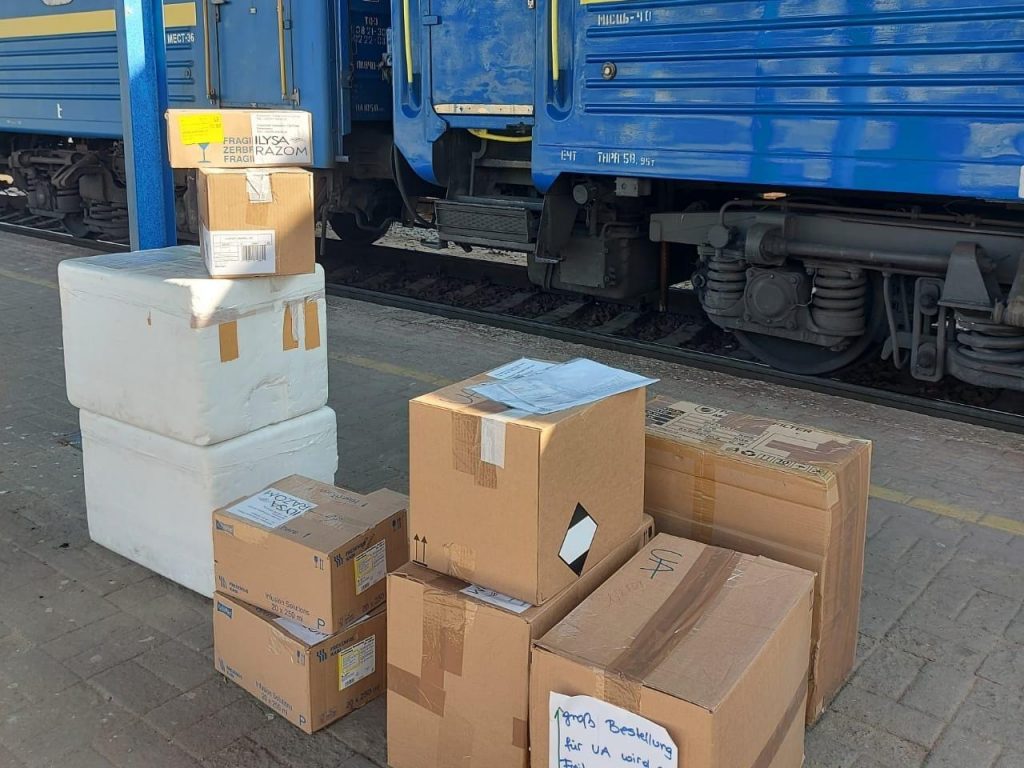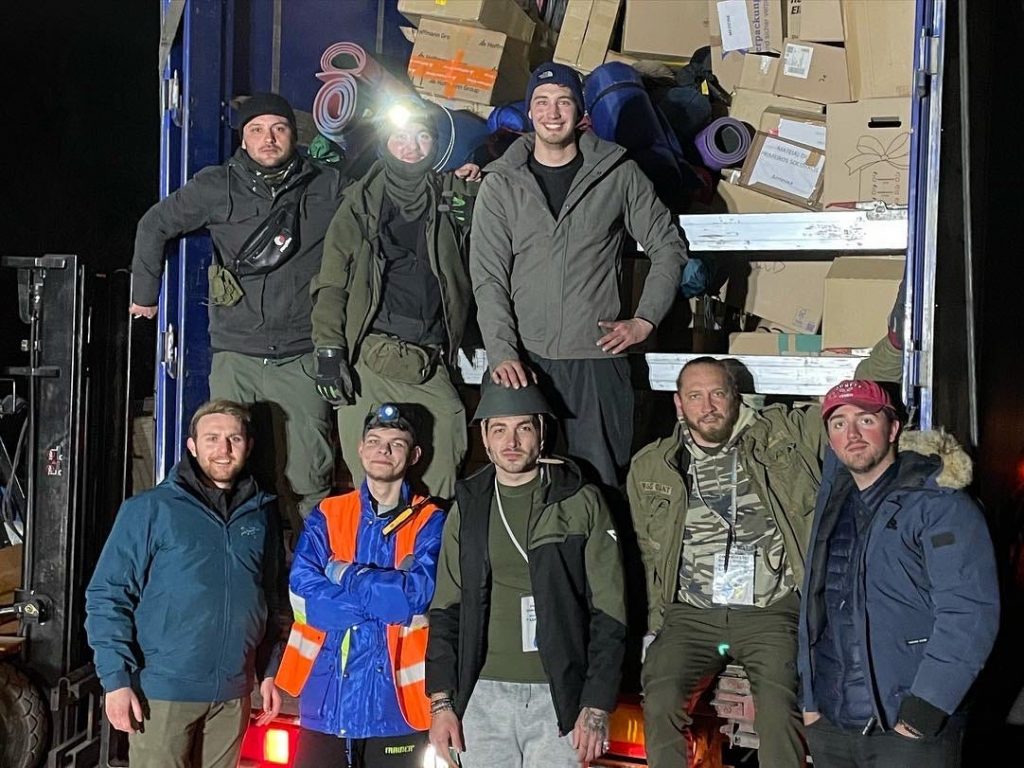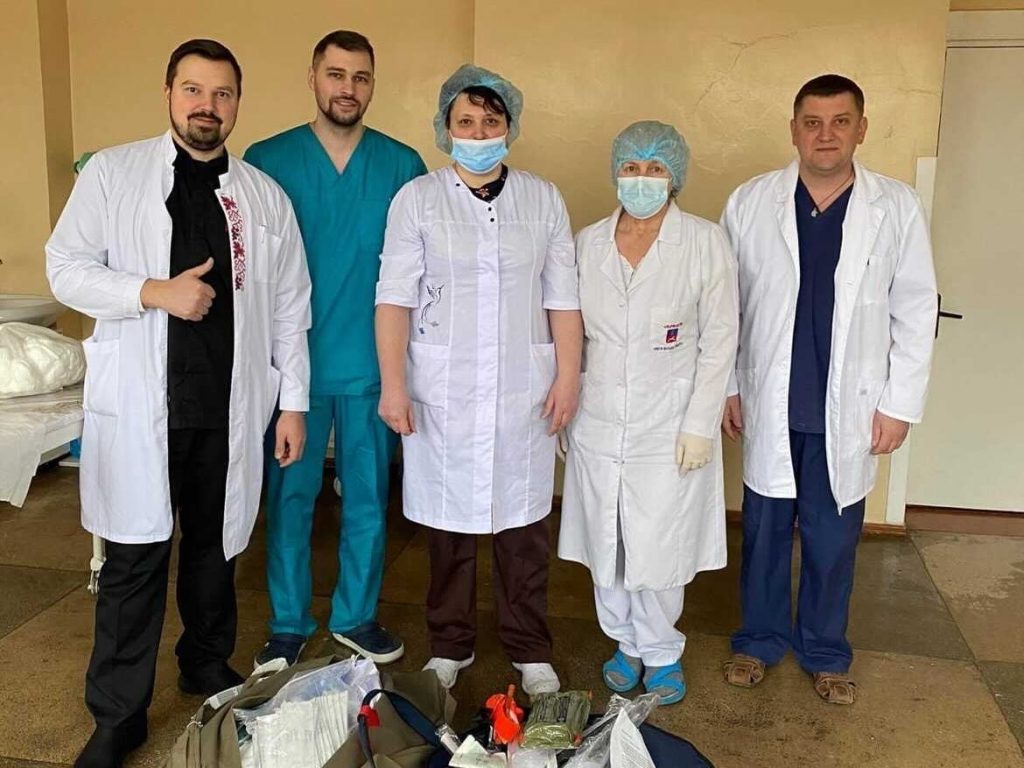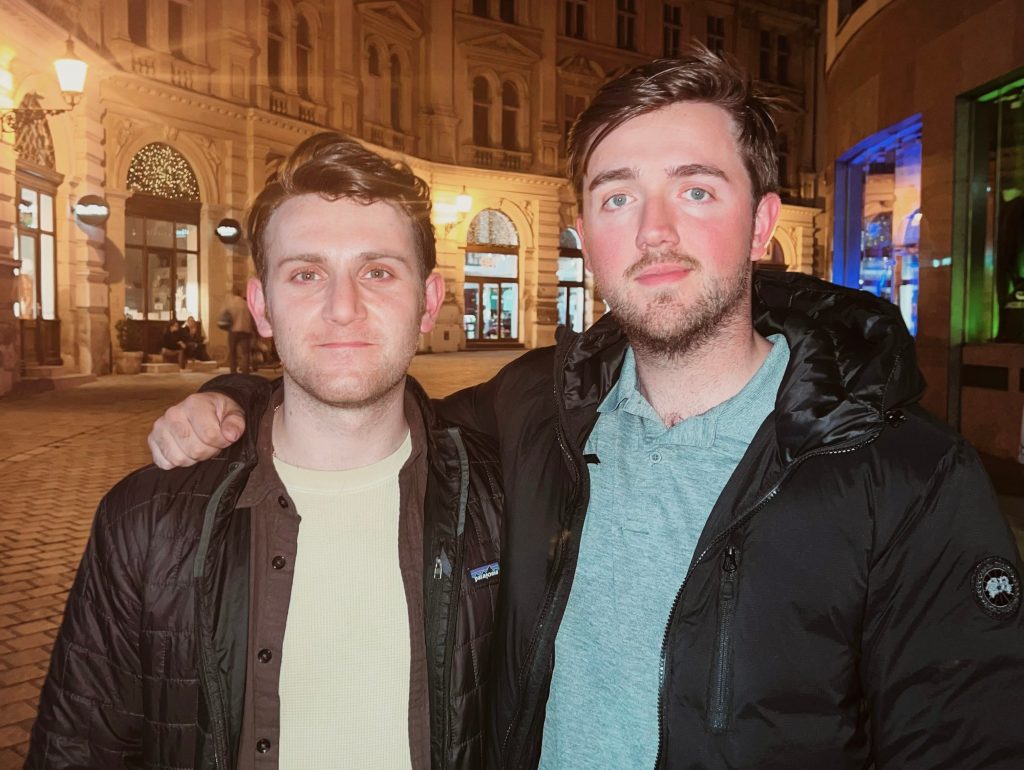- Mark Kreynovich and Dillon Caroll left for the Ukrainian border to provide supplies for those in need.
- Since then, they've supplied medical supplies, housing, and other necessities to refugees.
- This is their story, as told to reporter Dorothy Cucci.
This an as-told-to essay based on a conversation with Mark Kreynovich and Dillon Carroll. It has been edited for length and clarity.
Mark Kreynovich and Dillon Carroll met at Cornell University as first-year roommates and quickly became best friends. Mark was born in Ukraine and immigrated to the U.S. with his family when he was six months old. He still has family and friends in Kharkiv, Ukraine and spent most summers there growing up. When the war started, the two decided to fly to the Ukrainian-Polish border and provide aid.
When Russia invaded Ukraine on February 24, the day before our shared 24th birthday, we knew we couldn't sit idly by as Ukrainians — some of whom were friends and family members — put their lives at stake to protect their country and defend their freedom. So, we decided to take two weeks away from our lives and jobs in New York and go help in any way that we could.
We bought our tickets and got on a plane to Vienna a little over a week later, on March 3. By the time we took off, we'd been fundraising through Spotfund and in less than 24 hours we had already received nearly $10,000. We've also been sharing daily updates on our Instagram accounts and now, we've received over $100,000 in donations.
On the flight overseas, we started to hash out our plan.
Our main objective was to purchase and provide supplies to both refugees and people who stayed in Ukraine. We could be the literal boots on the ground to deploy money and get materials in the hands of those that needed them. With the direct contacts and network we had in Ukraine, we knew we could take that money and quickly get insulin, baby food, and other necessities into the hands of those who needed them.
When we arrived in Vienna, we partnered with local pharmacies to place bulk orders directly from their distributors. The first thing we did was rent an SUV with unlimited miles — it's a good thing, too, because we ended up driving over 4,000 miles in 11 days. Our car became our mobile office.
Two of our most crucial contacts were Andrei and Olexiy, both family friends. Andrei is leading and coordinating with a Ukrainian civilian group, directly providing us with their supply needs, which included communication equipment (like radios) for volunteers who transport medicine, food, and other critical items in cities under siege. Olexiy, who works directly with a trauma ward staffed by his wife's medical school classmates,was able to send us a very specific list of materials that they needed, whether it was 7.5 millimeter syringes or a certain number of antibiotics.
By the time we arrived in Vienna, we had a list of direct objectives ready to go.
Through a tangential relationship, we knew someone in the city who could translate for us. She came with us to several pharmacies and explained to pharmacists who we were and what we needed. By a stroke of luck, we found one pharmacy that was able to fulfill our first bulk order of medical supplies for about $13,000. We went back to them several times during the following two weeks with new orders.

After we placed that first shipment, we had a few days before the supplies would be ready for pick up. We understood that about 80% of refugees were fleeing through the Polish-Ukrainian border, so we decided that if we wanted to meet and help refugees, we needed to go to Poland.
We hopped in the car the next morning and drove north through the Czech Republic to Krakow, about a five-hour trip. When we got there, we met a couple that was struggling to withdraw money — they told us many of the city's ATMs were having issues because of the influx of refugees.
We also noticed five huge charter buses decorated with Norwegian and Ukrainian flags. We learned that these buses were bringing people to Norway — but that the Norwegian government required any refugees coming in to stay for a full year. We spoke to a family who was eligible to go but chose not to.
It's important to note that the overwhelming majority of Ukrainians don't want to be far from their country. For them, this isn't an opportunity to move west; they want to be back as soon as possible.
Shortly after, we were told about a woman who did want to leave but couldn't find the buses. We coordinated with a few contacts and drove around the city until we were able to find her and bring her to the Norwegian bus group, which was located at the train station.
You hear about refugees on the news, but until you see thousands of people sleeping on the floor — women and children and elderly people with nowhere to go — you can't really grasp it.
We walked through that train station and saw that almost every single person was a refugee. Children were playing soccer and people were eating soup on the ground. It started to put into perspective how huge this crisis really was.
Before we left Krakow, we also helped a group of families, nine refugees in total, secure housing. We found an apartment with six bedrooms and were able to negotiate a price and pay for them a place to stay.

When we returned to the pharmacy in Vienna, we started loading all of the medical supplies into a truck that we rented. Then, we brought those boxes to a team of warehouse couriers we connected with in Bratislava, Slovakia, which is about an hour drive east of Vienna. After we handed off the packages to them, we transported some of the more sensitive materials, namely insulin which must be carefully refrigerated, directly to the border. In the meantime, we waited for confirmation that the Bratislava shipment had actually arrived. Sure enough, we received photos and videos of the supplies that had arrived safely to the trauma ward in Cherkasy.
To be honest, we never expected that our efforts would be so successful and supported in such a short amount of time.
We've had to have a lot of hard conversations and discuss worst case scenarios. And even though we only planned to go for two weeks, we've decided to return at the end of March and, this time, stay indefinitely.

We now have a clear understanding of our operation capabilities, and we've been holding our head above water successfully. And the more time we spend here, the more integrated we are in these supply networks — we have more and more people that rely on us.
We've closed the first chapter of this project: We've explored, we understand the landscape, and now we can go back and immediately start executing in a very targeted way.
We want to be there throughout this war to continue to buy supplies for refugees and civilians still trapped in Ukraine, to provide temporary housing, to provide translation services, and to give these people a voice and a platform to express how they're feeling.
For as long as we're able and our donor base enables us to, we're both strongly committed to fighting the good fight, on the ground. For others looking to support Ukrainians, donating time and financial resources is always helpful. Our contacts have told us that a month into the war, donations are already starting to die down.
It's also important to keep talking about what's happening in Ukraine. The crisis changes daily, and it will impact the Ukrainian people — and the rest of the world — for years to come. For more information, you can track our activity and message us directly on our Instagram, @missiontoukraine.
